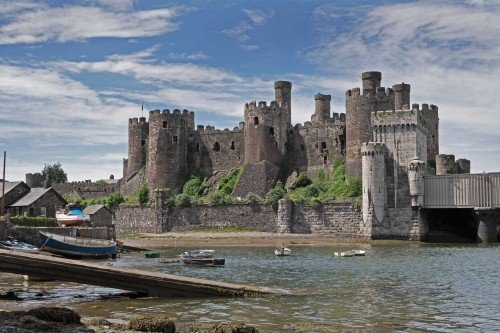
Introduction:
Wales, a country known for its breathtaking landscapes, rich history, and vibrant culture, is not immune to political challenges. While it boasts a devolved government and a distinct political identity, Wales has encountered its fair share of problems on the political front. In this blog post, we will delve into some of the key political issues that have shaped the Welsh political landscape in recent times, exploring their causes, consequences, and potential solutions.
Devolution and Constitutional Ambiguities:
One of the significant political challenges faced by Wales revolves around its devolved government. Although devolution has granted Wales a degree of autonomy, the constitutional arrangements and competencies between the Welsh government and the UK government have often been a source of contention. This has led to disputes over funding, decision-making powers, and the overall relationship between Wales and the United Kingdom.
Devolution and constitutional ambiguities have been central to the political landscape of Wales since the establishment of the Welsh devolved government in 1999. While devolution has provided Wales with a level of self-governance, the distribution of powers and the relationship between the Welsh government and the UK government have been subject to ongoing debates and disputes.
One of the key challenges is the ambiguity surrounding the extent of devolved powers. The devolution settlement granted certain areas of decision-making authority to the Welsh government, such as health, education, and transportation. However, the boundaries of devolved powers have been a subject of contention, with disagreements arising over issues like funding, economic policies, and infrastructure projects. These disputes often stem from differences in interpretation between the Welsh and UK governments, leading to conflicts that can hinder effective governance.
Another aspect of devolution and constitutional ambiguities is the question of fiscal powers and financial autonomy. Wales relies heavily on the UK government for funding, and there have been concerns about the adequacy and fairness of the funding arrangements. The Barnett Formula, used to calculate the block grant allocated to Wales, has faced criticism for not accurately reflecting the country's needs and priorities. This has sparked calls for greater fiscal powers, including the ability to raise taxes and control more of its finances, enabling Wales to have more control over its economic development.
The relationship between the Welsh and UK governments has also been a point of contention. Some argue that there is a perceived imbalance of power, with the UK government holding significant influence over Welsh affairs. This has led to demands for a more equal partnership, where the Welsh government has a stronger voice in decision-making processes that directly affect Wales.
Efforts have been made to address these devolution and constitutional challenges. The 2017 Wales Act sought to clarify and strengthen the devolution settlement, providing greater clarity on the areas of devolved powers. The introduction of the reserved powers model aimed to ensure that powers not explicitly reserved to the UK government are devolved to Wales. Additionally, the establishment of the Inter-Governmental Relations (IGR) structures has provided a forum for dialogue and cooperation between the Welsh and UK governments, aiming to address disputes and foster better working relationships.
Nevertheless, devolution and constitutional ambiguities remain important issues in Welsh politics. Striking the right balance between the Welsh government's autonomy and the integrity of the UK as a whole continues to require careful consideration and ongoing negotiation. Clarifying the distribution of powers, ensuring fair funding arrangements, and fostering cooperative governance between the Welsh and UK governments are key steps towards addressing these challenges and strengthening the devolved political system in Wales.
Socioeconomic Disparities:
Wales has struggled with persistent socioeconomic disparities, particularly in the context of economic development and employment opportunities. Certain regions, such as the South Wales Valleys, have faced high levels of unemployment and economic deprivation, while urban areas like Cardiff have experienced rapid growth and prosperity. This imbalance has contributed to political tensions, with calls for more equitable distribution of resources and efforts to bridge the gap between different parts of the country.
-
The Welsh Language and Cultural Identity:
The promotion and preservation of the Welsh language and cultural identity have been key political issues in Wales. While there have been efforts to revitalize the Welsh language through education and official language policies, concerns persist regarding its declining usage and the impact of globalization. Balancing the need to preserve Welsh culture with the challenges of a changing society and diverse population has been a delicate and ongoing political debate.
Brexit and its Implications:
The decision to leave the European Union (EU) has had significant ramifications for Wales, a country that received substantial EU funding and relied on EU membership for trade and economic opportunities. The Brexit referendum revealed deep divisions within Welsh society, with some regions strongly in favor of leaving the EU and others adamantly opposed. Navigating the consequences of Brexit, including trade disruptions, agricultural policies, and future relationships with the EU and the UK, has posed complex challenges for Welsh politics.
Environmental Concerns and Sustainability:
Environmental issues, including climate change, renewable energy, and conservation, have increasingly become focal points of political discourse in Wales. As a country blessed with natural beauty and a deep connection to its landscapes, Wales has faced pressure to balance economic development with environmental sustainability. Debates surrounding renewable energy projects, land use, and conservation efforts have highlighted the need for robust political decision-making to address these pressing concerns.
Conclusion:
Political problems in Wales are a reflection of the complexities inherent in governance, devolution, and socio-cultural dynamics. The issues discussed in this blog post, ranging from constitutional ambiguities to environmental concerns, shape the political landscape of Wales and impact the lives of its residents. Addressing these challenges requires open dialogue, collaboration, and a forward-thinking approach that considers the diverse needs and aspirations of the Welsh people.
By understanding the intricacies of the political problems in Wales and engaging in constructive conversations, policymakers and citizens can work towards building a stronger, more inclusive, and prosperous future for this remarkable nation.








